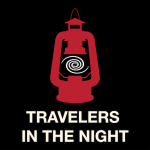Podcaster: Dr. Al Grauer

Title: Travelers in the Night Digest: Lunar Village & Blinded
Organization: Travelers in The Night
Link : Travelers in the Night
Description: Today’s 2 topics:
- Build a village on the moon
- Dark Skies Awareness
Bio: Dr. Al Grauer is currently an observing member of the Catalina Sky Survey Team at the University of Arizona. This group has discovered nearly half of the Earth approaching objects known to exist. He received a PhD in Physics in 1971 and has been an observational Astronomer for 43 years. He retired as a University Professor after 39 years of interacting with students. He has conducted research projects using telescopes in Arizona, Chile, Australia, Hawaii, Louisiana, and Georgia with funding from NSF and NASA.
He is noted as Co-discoverer of comet P/2010 TO20 Linear-Grauer, Discoverer of comet C/2009 U5 Grauer and has asteroid 18871 Grauer named for him.
Today’s sponsor: This episode of “365 Days of Astronomy” is sponsored by — no one. We still need sponsors for many days in 2017, so please consider sponsoring a day or two. Just click on the “Donate” button on the lower left side of this webpage, or contact us at signup@365daysofastronomy.org.
Transcript:
253 – Lunar Village
Covered by a blanket of lunar soil to protect it from BB sized meteoroids arriving a gunshot speeds, a village is nestled in a large crater on our moon. The individual structures are connected together by tunnels. The site was chosen to access the water and metals which were brought to the site by asteroid impacts.
The village will use the raw materials found near the site and abundant solar energy to enable massive 3D printers to create facilities for humans from around the world to live and work on our moon. This outpost will be the beginning of a path from the current International Space Station to Mars and beyond.
NASA’s Orion Crew and the European Service modules are the critical first steps in enabling humans to move beyond low Earth orbit. To build on these efforts representatives from more than 14 countries around the world are coming together for an International Symposium on Moon 2020 to 2030. The primary goals of this symposium are to create a structure to which will be built on partnerships between governments, academic institutions, and other private sector groups. This organization will enable the world wide spacefaring community to move from individual missions to an architecture which will enable repeated missions of increasing levels of accomplishment. This new collaboration will encompass both automated missions as well as ones which involve the cooperation of humans and robots.
The next decade is shaping up to be very interesting in the continuing saga of space exploration
254 – Blinded
Blinded by inappropriate outdoor night lighting, much of humanity is now unaware of the rich beauty of the Universe which surrounds them. To see sights which have inspired countless generations of lovers, poets, scientists, authors, artists, mathematicians, and dreamers people must travel out of their artificial light domes to one of the few remote locations which offer the opportunity to view the natural night sky.
The International Dark Sky Association, also known as the IDA, exists to identify and help protect your opportunity to become personally connected to the mysteries of the natural night sky. You can explore one of these natural night sky sites remotely at cosmiccampground.org. Don’t stop there. Visit a dark sky site which you can locate on the darksky.org website.
Pick a nice clear night when it is not too cold. Take your inner child and perhaps a young person with you. A flashlight with a red wrapper attached to it with a rubber band is essential. Don’t look at a white light for at least 30 minutes. Bring a star chart to make friends with some of the bright stars. Your dark adapted eyes, binoculars, and/or a telescope will put you in direct personal contact with the wonders of the natural night sky. Views of the Milky Way, star clusters, faint galaxies, the zodiacal light, and other treats are bound to be good for your soul.
Pass your experience on by telling others about what it is like to view the natural night sky.
For Travelers in the Night this is Dr. Al Grauer.
End of podcast:
365 Days of Astronomy
=====================
The 365 Days of Astronomy Podcast is produced by Astrosphere New Media. Audio post-production by Richard Drumm. Bandwidth donated by libsyn.com and wizzard media. You may reproduce and distribute this audio for non-commercial purposes. Please consider supporting the podcast with a few dollars (or Euros!). Visit us on the web at 365DaysOfAstronomy.org or email us at info@365DaysOfAstronomy.org. This year we will celebrate more discoveries and stories from the universe. Join us and share your story. Until tomorrow! Goodbye!

